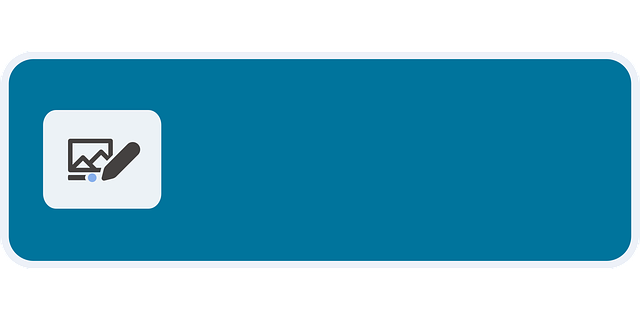WordPress Design is a powerful, open-source CMS known for its versatility, accessibility, and robust design tools. It allows users, from beginners to developers, to create stunning websites without extensive coding, thanks to its extensive library of themes and plugins. This user-friendly platform streamlines content creation, enhances SEO with optimized features, and offers unparalleled customization through intuitive interfaces. By leveraging WordPress's responsive layouts, security measures, and a thriving community, website owners can build engaging online presences that cater to modern audiences and drive business success in the digital landscape.
WordPress has revolutionized website development, offering a powerful Content Management System (CMS) accessible to everyone. This article explores the advantages of using WordPress for building dynamic sites, highlighting key components of successful design and customization options within its vast theme library. We’ll delve into plugins that enhance functionality, SEO best practices, security measures, user-friendly interfaces, and inspiring case studies showcasing real-world WordPress designs.
Understanding WordPress: A Powerful Content Management System

WordPress is more than just a website platform; it’s a robust content management system (CMS) that has revolutionized how we build and manage online spaces. At its core, WordPress is an open-source software, making it highly adaptable and customizable for various needs. This flexibility allows developers to create unique websites, from simple blogs to complex e-commerce stores, without writing every line of code from scratch.
The power of WordPress lies in its user-friendly interface and extensive library of themes and plugins. With countless design options available, users can quickly transform their sites into visually appealing and functional masterpieces. Moreover, WordPress Design offers a seamless content creation process, enabling non-technical individuals to publish and organize content with ease. This accessibility has made WordPress one of the most popular choices for businesses and individuals seeking to establish an online presence.
Advantages of Using WordPress for Website Development

WordPress has become a powerhouse in website development, offering numerous advantages for both creators and users. One of its key strengths lies in its user-friendly interface and drag-and-drop functionality, which enables non-technical individuals to build and customize websites with relative ease. This accessibility has democratized digital creation, allowing folks from all walks of life to establish an online presence without extensive coding knowledge.
Moreover, WordPress provides a vast library of customizable themes and plugins, fostering unparalleled flexibility in terms of design and functionality. Whether one seeks a simple blog or a complex e-commerce platform, the extensive community and open-source nature of WordPress offer solutions for every need. This dynamic ecosystem not only ensures constant updates and improvements but also facilitates seamless integration with various tools and services, making it a top choice for modern website development.
Key Components of a Successful WordPress Design

Customization Options in WordPress Themes

WordPress themes offer an extensive range of customization options, allowing users to tailor their website’s design to suit their unique brand and vision. From color schemes and fonts to layout structures, WordPress provides a user-friendly interface for beginners and advanced developers alike. By choosing a theme that aligns with your content and audience needs, you can create a visually appealing and engaging site without the hassle of coding from scratch.
Through customizer tools, users can experiment with real-time changes, ensuring that every adjustment is reflected instantly. This feature enables designers to explore various design elements, such as header styles, menu positions, and widget configurations, resulting in a truly personalized WordPress design experience. With countless themes available, each boasting unique features and customization capabilities, WordPress empowers creators to build stunning websites that stand out in the digital landscape.
Plugins: Enhancing Your WordPress Website's Functionality

Plugins are an integral part of WordPress design, offering a simple yet powerful way to enhance your website’s functionality. With thousands of plugins available in the WordPress directory, you can add various features and customize your site’s behavior without writing a single line of code. From SEO optimization to security enhancements, e-commerce solutions, and social media integration, there’s a plugin for almost every need.
These small pieces of software allow you to extend WordPress beyond its core capabilities, providing an easy way to implement complex functionalities. Whether it’s improving site speed, creating advanced forms, or adding interactive elements, plugins offer a flexible and efficient solution. Many developers create plugins specifically tailored to address common challenges in WordPress design, ensuring that users can quickly adapt and optimize their websites to meet their unique requirements.
SEO Best Practices for WordPress Sites

When developing a WordPress website, incorporating SEO best practices is essential for visibility and ranking on search engines. A key aspect is optimizing content with relevant keywords that resonate with your target audience. This involves conducting thorough keyword research to identify high-volume, low-competition terms and naturally integrating them into titles, headings, meta descriptions, and across the site’s content. Additionally, crafting compelling, informative, and unique copy enhances user experience and encourages longer visits, a factor search algorithms consider.
WordPress Design plays a pivotal role in SEO success. A clean, mobile-responsive design with fast loading times ensures sites deliver an optimal user experience. Implementing structured data markup helps search engines understand content better, leading to enhanced snippet visibility and potential rich results. Regular updates, secure plugins, and themes also contribute to site health, security, and performance, all of which positively impact SEO rankings over time.
Ensuring Security and Maintenance in WordPress Development

In the realm of WordPress development, ensuring security and maintenance is paramount for any well-crafted website. A robust WordPress design should incorporate robust security measures to safeguard against common threats like brute-force attacks, malware, and data breaches. Regular updates are key; keeping both the WordPress core, themes, and plugins up to date helps patch vulnerabilities and maintain optimal performance. Automated security plugins and two-factor authentication can further fortify the site against potential risks.
Proactive maintenance includes regular backups, which safeguard against data loss and enable quick restoration in case of issues. Monitoring website activity for any unusual behavior is also essential. By combining these practices with best practices in WordPress development, such as using strong passwords and limiting plugin installations to only necessary tools, developers can create a secure digital environment that serves users well over time.
Building a User-Friendly Interface with WordPress

WordPress is renowned for its user-friendly interface, making website development accessible to everyone, from beginners to experts. The platform’s intuitive dashboard allows users to easily manage content, design settings, and various plugins with just a few clicks. This simplicity ensures that creating and customizing your website becomes a seamless experience, enabling you to focus on delivering valuable content without getting bogged down by technical complexities.
With WordPress Design at its core, the platform offers a vast library of customizable themes and templates, empowering users to craft visually appealing websites tailored to their brand and audience. Whether you’re building a blog, an e-commerce store, or a portfolio site, the user-friendly interface and extensive design options in WordPress make it a top choice for creating engaging online experiences that keep visitors coming back for more.
Case Studies: Real-World Examples of Effective WordPress Websites

Case studies provide an excellent way to learn from real-world examples of successful WordPress website development. By examining sites across various industries, you gain insights into how different brands have harnessed the power of WordPress Design to achieve their goals. From e-commerce platforms showcasing product catalogs and seamless checkout processes, to portfolio websites displaying creative works with captivating visual storytelling, these case studies offer a wealth of inspiration and practical lessons.
Each study highlights unique challenges and innovative solutions tailored to specific needs, demonstrating WordPress’ versatility and adaptability. For instance, some sites leverage custom themes for brand identity, while others utilize plugins to enhance functionality. These real-life applications illustrate how WordPress Design can be customized and optimized to deliver exceptional user experiences, driving engagement and ultimately contributing to business success.
